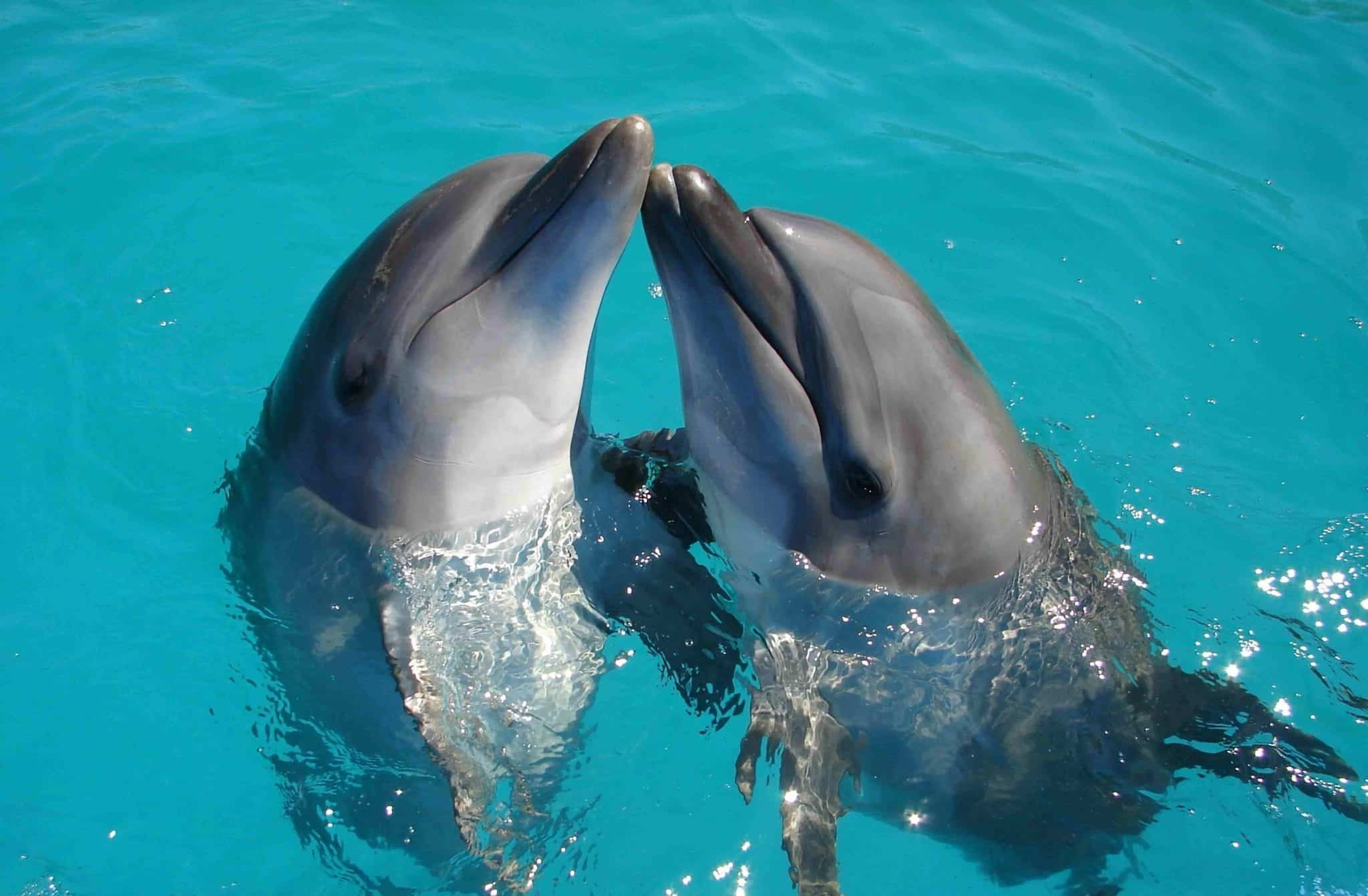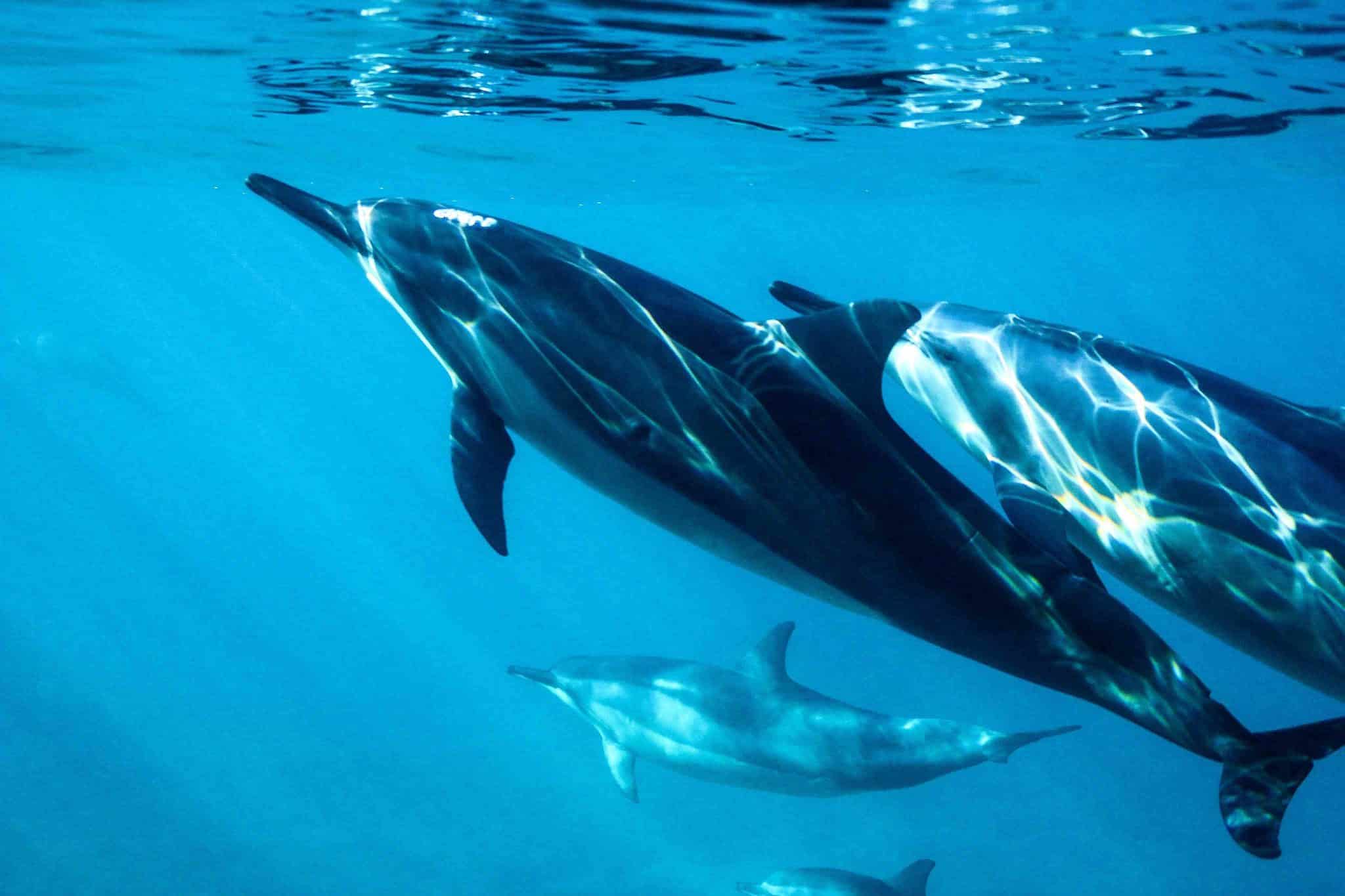Dolphins - these majestic creatures of the ocean have captured our hearts with their playful nature and undeniable intelligence.
Quick Facts About Dolphins
Many cultures even view dolphins as a beautiful and magnificent creature that brings good luck and symbolises freedom, with many going sightseeing to catch a glimpse of dolphins or observing them in a local aquarium.
But as we marvel at their beauty and grace, there's one question that lingers in the back of our minds: Can you eat dolphin? It may seem like a taboo topic, but today we're diving deep into the world of dolphin consumption to uncover the truth.
So read on as we explore whether it's safe, healthy, and even legal to indulge in this controversial delicacy.
Can You Eat Dolphin?
It's absolutely possible to eat dolphin meat, however, it's important to note that consuming dolphins is not common in most cultures around the world. Dolphins are actually protected species in many parts of the world due to conservation efforts, including the United States. This means that hunting or fishing for dolphins with the intention of eating them is illegal and can result in severe penalties.

Even if it were legal, there are ethical concerns surrounding the consumption of dolphin meat. Dolphins are highly intelligent creatures with complex social structures. They exhibit self-awareness and have been known to display emotions such as joy and grief. Many people believe that it is morally wrong and sees it as a taboo to harm these magnificent animals for food.
While there may be a few places where dolphin meat can still be found on menus, it's important to note that these establishments may be operating outside of legal boundaries or catering to tourists seeking exotic dishes. It's crucial for consumers to understand the impact their choices can have on wildlife conservation efforts.
While you could technically eat dolphin in certain circumstances or regions where regulations differ or conservation measures aren't enforced strictly enough - doing so raises serious ethical concerns.
What Does Dolphin Meat Taste Like?
Dolphin meat, also known as mahi-mahi or dolphinfish, has been consumed by certain cultures for centuries. If you're wondering what dolphins taste like then you're in for a treat.
For those who have tried dolphin meat, the general consensus is that it has a distinguished flavour which is described as being similar to beef or pork but with a slightly fishy flavour due to its marine diet. However, it is important to note that the taste can vary depending on the type of the dolphin or how it is prepared and cooked.
However, it's worth mentioning that there are ethical concerns surrounding the consumption of dolphins due to their intelligence and conservation status. Many people advocate for their protection rather than their consumption. As a result, accessing dolphin meat for consumption is highly regulated.
Can You Legally Eat Dolphin?
When it comes to the question of whether you can legally eat dolphin, the answer is not as straightforward as you might think. The legality of consuming dolphin meat varies depending on where you are in the world.
In some countries, such as Japan and parts of South America, eating dolphin meat is still practised and considered culturally acceptable. However, even in these regions, there are regulations in place to control the hunting and consumption of dolphins.
On the other hand, many countries such as the United States and many European countries, have prohibited the consumption of dolphin meat due to conservation concerns and ethical reasons. These bans aim to protect these intelligent marine mammals from overfishing and potential harm caused by human activities.
It's important to note that international laws also play a role in regulating the trade and consumption of dolphin meat. The Convention on International Trade in Endangered Species (CITES) has listed certain species of dolphins under its protection, making it illegal to sell or consume their meat internationally.
Are Dolphin Meat High in Mercury?
Dolphins are known to be at the top of the marine food chain, which means they consume a variety of smaller fish and other sea creatures. Unfortunately, this also means that dolphins accumulate high levels of mercury in their bodies.
Mercury is a toxic heavy metal that can have serious health effects on humans when consumed in large quantities. It can have detrimental effects on our nervous system, particularly affecting brain development and cognitive function. Pregnant women and young children are especially vulnerable to the harmful effects of mercury exposure.
But why do dolphins have such high levels of mercury? The main reason is bioaccumulation. As dolphins eat smaller fish and organisms that contain traces of mercury, it becomes concentrated within their bodies over time. Additionally, some species of dolphins may live for many years, allowing for further accumulation of mercury.
Human activities also contribute to the presence of mercury in oceans. Industrial processes like coal burning release mercury into the atmosphere which eventually settles into water bodies where it enters the food chain. Therefore, consuming dolphin meat poses significant health risks due to its high mercury content.
To ensure your safety and well-being, it is best to err on the side of caution and avoid consuming dolphin meat altogether. Opting for other sources of seafood with lower levels of contaminants will help you maintain a healthy diet while minimising your exposure to toxic substances like mercury
Can You Eat Dolphin Raw?
Many people wonder if it's safe to eat raw dolphin meat. While some cultures consume raw fish and seafood, such as sushi or sashimi, consuming raw dolphin meat is not recommended for several reasons.
Eating any type of raw meat comes with inherent risks. Raw meat can contain harmful bacteria and parasites that can cause foodborne illnesses. Cooking the meat properly helps to kill these microorganisms and make the food safer to consume.

Dolphins are known to accumulate high levels of mercury in their bodies due to their position in the marine food chain. Mercury is a toxic metal that can have severe health effects on humans if ingested in large amounts. Therefore, even if you were considering trying dolphin meat, it would be best to cook it thoroughly before consumption.
While you may come across claims or stories about consuming raw dolphin meat, it is advisable not to indulge in this practice due to potential health risks associated with bacteria contamination as well as high levels of mercury present in their flesh.
Why are Dolphins Protected?
Dolphins are creatures with highly cognitive abilities that needs to be protected so as not to go extinct. But unfortunately, not all dolphins can be protected completely.
The main threat of dolphins comes from human activities. Dolphins face numerous threats such as pollution, habitat destruction, and hunting. They are also faced with threats of being injured by fishing gears or boat propellers when people visit areas where dolphins live. Therefore, protecting them ensures their survival and safeguards biodiversity in our oceans.
Conservation efforts for dolphins put in place include establishing marine protected areas where they can thrive undisturbed by human interference. These areas serve as sanctuaries for dolphin populations to breed, feed, rest, and engage in natural behaviours without disturbance from recreational activities or industrial operations.
In addition to legal protections like restrictions on hunting or capturing dolphins for entertainment purposes such as dolphinariums or swim-with-dolphin programs; education campaigns aim to raise awareness about responsible boating practices near dolphin habitats to minimise disturbances caused by noise pollution or vessel collisions.
Conclusion
While it may be technically possible to eat dolphin meat, it is highly discouraged and illegal in many places around the world. Dolphins are intelligent, social creatures that play a vital role in marine ecosystems. They are protected for good reason.
The high levels of mercury and other toxins found in dolphin meat make it unsafe for human consumption. Additionally, there are ethical concerns surrounding the hunting and killing of dolphins for food.
If you must eat dolphin meat, adhere to proper safety guidelines and purchase it from a reputable source. For most part, going for a safer seafood option which is low in mercury and doesn't pose any health risks is the best.

My name is Iyanu Kolawole, I’m a professional content writer and web developer. I have always been passionate about writing and developing my coding skills. I started my career as a content writer and have written for several companies and brands. I am also a skilled web developer and have built several websites for businesses and individuals.I am a hardworking individual who is always looking to improve my skills. I am constantly striving to learn new things and to be the best at what I do. I am also a very friendly person and enjoy working with others.
The content is intended to augment, not replace, information provided by your clinician. It is not intended nor implied to be a substitute for professional medical advice. Reading this information does not create or replace a doctor-patient relationship or consultation. If required, please contact your doctor or other health care provider to assist you to interpret any of this information, or in applying the information to your individual needs.


